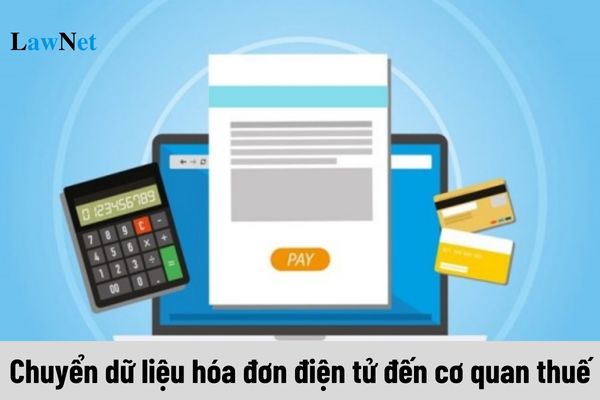What are requirements for a postal service provider to directly transmit data to tax authorities in Vietnam?
What are requirements for a postal service provider to directly transmit data to tax authorities in Vietnam?
Pursuant to the provisions of Clause 4 Article 12 of Decree 123/2020/ND-CP, postal service providers that directly transmit data to tax authorities must meet the following requirements:
- Connect with the General Department of Taxation via a dedicated leased line or MPLS VPN Layer 3 channel, including one primary transmission channel and one backup channel. Each transmission channel must have a minimum bandwidth of 5 Mbps.
- Use Web Services or Message Queue (MQ) with encryption as the method of connection.
- Use the SOAP protocol for data packaging and transmission.
Are postal service providers allowed to use unauthenticated e-invoice in Vietnam?
Pursuant to the provisions of Clause 2 Article 91 of the Tax Administration Law 2019 on the application of e-invoices for the sale of goods and provision of services as follows:
Application of e-Invoices When Selling Goods, Providing Services
...
2. Businesses operating in the fields of electricity, petroleum, postal telecommunications, clean water, financial credit, insurance, healthcare, e-commerce, supermarket trade, commerce, aviation, road, railway, maritime, inland waterway transportation, and businesses, economic organizations that have or will perform transactions with tax authorities through e-means, build IT infrastructure, have accounting software systems, e-invoice drafting software meeting the creation, lookup of e-invoices, and storage of e-invoice data as per regulations and ensure the transmission of e-invoice data to buyers and to tax authorities, shall be allowed to use unauthenticated e-invoice when selling goods, providing services, irrespective of the value of each sale, except in cases of high tax risk as prescribed by the Minister of Finance and cases where registration for the use of e-invoices with a tax authority code has been made.
...
Thus, postal service providers are not subject to the use of unauthenticated e-invoice when providing services, regardless of the value of each service provision, except in cases of high tax risk as prescribed by the Minister of Finance and cases of registration for the use of e-invoices with a tax authority code.

What are requirements for a postal service provider to directly transmit data to tax authorities in Vietnam? (Image from Internet)
What are the rights and obligations of postal service providers in Vietnam?
Pursuant to the provisions of Article 29 of the Postal Law 2010 regarding the rights and obligations of postal service providers as follows:
In addition to the rights and obligations provided in the Enterprise Law 2020, postal service providers have the following rights and obligations:
- Establish postal networks to provide postal services;
- Be paid in full for the postal service fees that they render;
- Inspect the contents of packages and parcels before acceptance;
- Refuse to provide postal services if a postal item is found to violate the provisions of Article 12 Postal Law 2010 and the provisions on conditions for providing postal services of the business;
- Handle undeliverable postal items as stipulated in Clause 5 Article 17 Postal Law 2010;
- Provide complete and accurate information about postal services to postal service users;
- Publicly post at service points the list of items and goods prohibited from sending, acceptance, and transportation through postal networks as stipulated in Article 12 Postal Law 2010 and the provisions on conditions for providing postal services of the business;
- Ensure safety and security in the provision and use of postal services as prescribed in Articles 13 and 14 Postal Law 2010;
- Bear legal responsibility for knowingly accepting postal items violating the provisions of Clauses 1, 2, and 3 of Article 7 and Article 12 Postal Law 2010;
- Not disclose information about the use of postal services by organizations or individuals, except in cases stipulated in Article 14 Postal Law 2010;
- Not provide postal services that violate the provisions on reserved postal services in any form;
- Be entitled to reasonable remuneration and costs when acting on behalf of postal service users to complete international postal item export and import procedures as prescribed in Article 15 Postal Law 2010;
- Perform services such as changing the recipient's name and address, withdrawing, forwarding, and returning postal items as stipulated in Clauses 2 and 3 Article 16, Clauses 2 and 3 Article 17 Postal Law 2010;
- Resolve complaints, disputes, and compensate for damages as prescribed by this Law and other relevant legal provisions.

